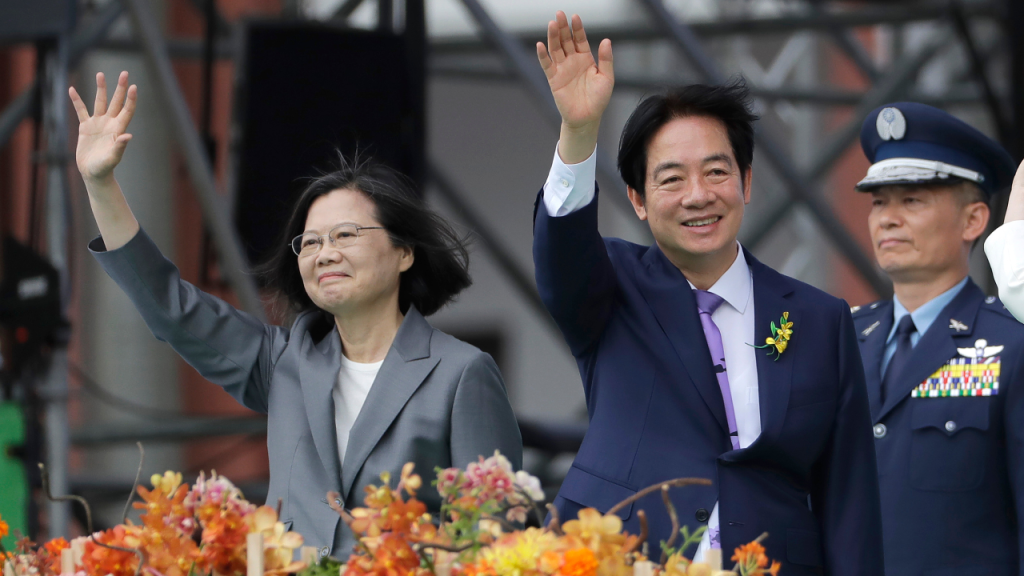Taiwan’s new President, Lai Ching-te, delivered an inauguration speech reaffirming his desire for peace with China while emphasizing Taiwan’s determination to defend itself against military threats. Lai, a member of the Democratic Progressive Party, made it clear that his party does not seek independence from China but maintains Taiwan’s sovereignty. However, Beijing criticized Lai’s speech as promoting separatism and relying on foreign forces to seek independence. China views Taiwan as a renegade province and has been increasing its threats to annex it by force.
As Lai takes over from Tsai Ing-wen, he is seen as continuing his predecessor’s progressive policies, including universal health care, support for minority groups, and advances in education and technology. Despite inheriting a challenging relationship with China, Lai vowed to maintain stability while enhancing Taiwan’s security through military imports from the U.S., defense industry expansion, and strengthening regional partnerships with allies like the U.S., Japan, South Korea, and the Philippines. The U.S., although not formally recognizing Taiwan as a country, is committed to providing defense support to the island nation.
Lai’s conciliatory tone in his inauguration speech has been viewed positively by foreign governments, assuring stability in Taiwan’s relations with China. His previous reputation as a “firebrand” has raised concerns in the past, but his commitment to maintaining the status quo across the Taiwan Strait has been seen as a step towards peace and stability in the region. Despite Beijing’s negative response to Lai’s sovereignty-affirming stance, there is hope that continued dialogue and diplomacy will lead to improved relations between Taiwan and China.
During her tenure, Tsai oversaw significant reforms in pension, labor, and military conscription. She also led Taiwan through the COVID-19 pandemic, receiving praise for keeping the virus largely outside its borders initially but facing criticism for the lack of investment in rapid testing as the situation evolved. Lai’s administration aims to build on Tsai’s achievements, focusing on social welfare, economic development, and technological advancement. With support from international allies like the U.S., Taiwan remains committed to defending its sovereignty and fostering peaceful relations with China.
The inauguration ceremony for Lai was attended by thousands of supporters and foreign delegations, reflecting the significance of Taiwan’s democratic process and the international community’s interest in the island nation’s future. Lai’s emphasis on dialogue and cooperation while standing firm in defense of Taiwan’s interests signals a balanced approach to managing relations with Beijing. As tensions continue to simmer between Taiwan and China, Lai’s leadership will be crucial in navigating the complex political landscape while advancing Taiwan’s interests on the global stage. Despite the challenges ahead, President Lai’s commitment to peace and stability in the region offers hope for a constructive dialogue with China and a prosperous future for Taiwan.


